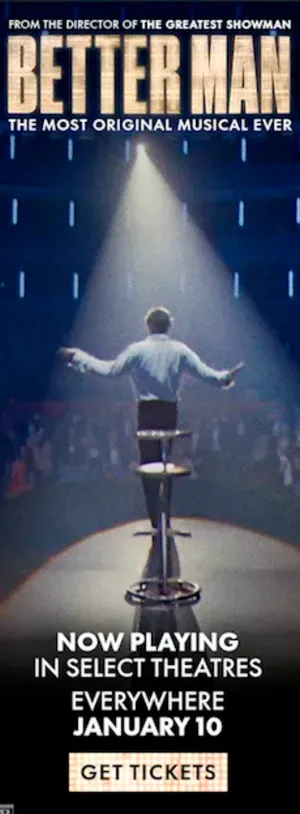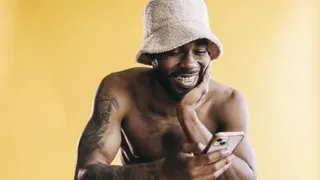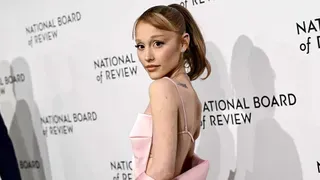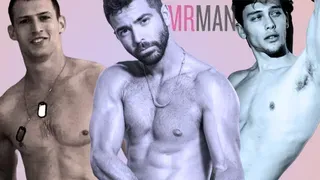October 30, 2023
'Gaylors' – Taylor Swift 'Queer' Theorists – Stick to Their Convictions
Kilian Melloy READ TIME: 4 MIN.
A subset of Taylor Swift fandom called "Gaylors" are sticking to the theory that Swift is secretly queer, and that she references her same-sex romances in coded lyrics.
Swift herself has said that she is not a member of the LGBTQ+ community, stating that plainly to Vogue in 2019 and adding, "I didn't realize until recently that I could advocate for a community that I'm not a part of."
The fans who cling to the idea that the pop icon is secretly queer aren't dissuaded by that statement, nor by Swift's prologue to her re-recorded "1989," in which she sought to dispel rumors that she and certain female friends – for instance, Karlie Kloss – were romantically involved. However, Swift's prologue "dampened what should have been an exciting release" for them, Rolling Stone reported.
As previously reported, Swift "called out the public for sexualizing her female friendships," and explained that she started hanging out with other women because any sighting of her with a man sparked instant assumptions of a sexual relationship and fed a rumor mill that painted her as a "boy crazy psychopath," per UK newspaper the Daily Mail.
"As she looked back at her life at 24, as she prepared to make the leap from a country artist to pop star, the 12-time Grammy winner explained she was desperate to 'silence' the voices shaming her for 'dating like a normal young woman,'" the Mail relayed.
"It became clear to me that for me there was no such thing as casual dating, or even having a male friend who you platonically hang out with," Swift recounts in the prologue.
As a result, the singer says, she "swore off dating and decided to focus only on myself, my music, my growth, and my female friendships," reasoning that, "If I only hung out with my female friends, people couldn't sensationalize or sexualize that right?"
Added the global pop star: "I would learn later on that people could and people would."
"Many users online interpreted that line as a subtle callout to Gaylors," RS relayed. "But several members of the Gaylor community tell Rolling Stone they're actually not convinced the callout is about them – and are receiving targeted and homophobic harassment in the process."
Noting that Swift is "a vocal ally and advocate for LGBTQ+ rights and representation," RS pointed out that the singer "has never publicly commented on Gaylor and has only been in public relationships with men."
But a 27-year-old member of the Gaylor fandom named Gabriela explained that while "she doesn't believe Swift's prologue is about the Gaylor fandom specifically," the music magazine noted, "she's frustrated at the use of the word 'sexualize,' which she says has long been co-opted by fans who think Gaylor is harmful or inherently rude."
"I think it's a call-out yes," Gabriela argued in her comments to Rolling Stone, "but more to the media at large, rather than just about the Gaylor subset of her fandom, which is only a small piece of her complaint."
Swift, Gabriela went on to say, "doesn't want to be assumed to be in a sexual, romantic relationship with anyone she is seen next to," while "Hetlors" – which, RS explained, are "those who object to the Gaylor discourse" – "are cherry-picking to make it about her 'shutting down gay rumors.'"
RS noted that Swift "often hides clues in her work and visuals, encouraging fans to decipher what coded messages and hints she's leaving behind."
Whether Swift has hidden romances to go with her hidden messages is a matter for those who wish to speculate on such things to argue over, but, another Gaylor named Anna told RS, the theories can get out of hand.
"Of course, I'm a little annoyed that people are pulling one or two lines of the prologue out of context and using it as a justification to be homophobic and send death threats to my friends," Anna, "who uses they/them pronouns," told the music mag, "but I don't think Taylor is at fault for people misconstruing her words and I think she has every right to call out things that make her uncomfortable."
Anna went on to add: "I've seen people speculate on her sex life, openly and graphically, track her location, insinuate that she wants/has children, and just overall cross a lot of boundaries."
"It may be unpopular for me to say it, but I do think members on all sides needed to be put in their place a little bit."
Liv, a Gaylor who has found her connection to the fandom to be personally enriching – "it's even how she met her current boyfriend," RS noted – chimed in. "It's always fun for me to think about what inspired a song. So even if it's not what happened in Taylor's life, it's interesting for me to think about a song through a queer lens, because I feel like it adds a lot of layers that a song about a guy might not have," Liv told the publication. "And I don't really know any straight people who are that deeply obsessed with Emily Dickinson."
Kilian Melloy serves as EDGE Media Network's Associate Arts Editor and Staff Contributor. His professional memberships include the National Lesbian & Gay Journalists Association, the Boston Online Film Critics Association, The Gay and Lesbian Entertainment Critics Association, and the Boston Theater Critics Association's Elliot Norton Awards Committee.








